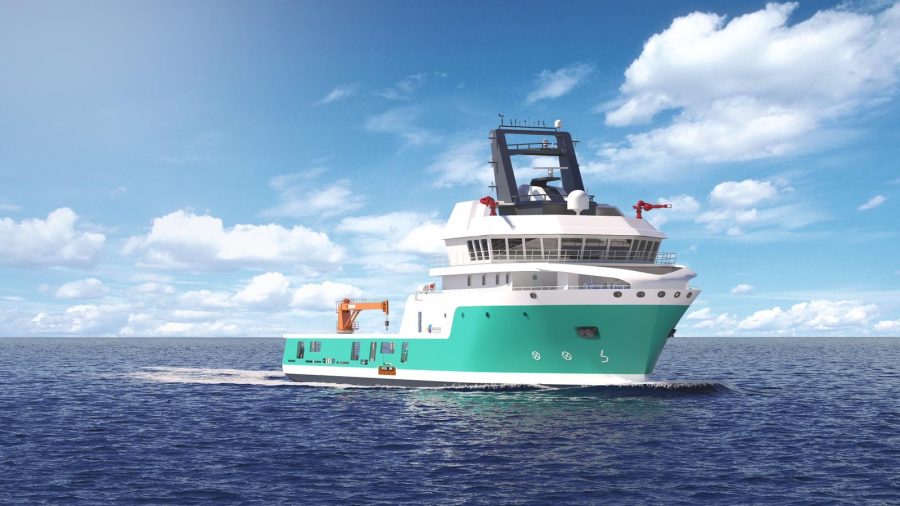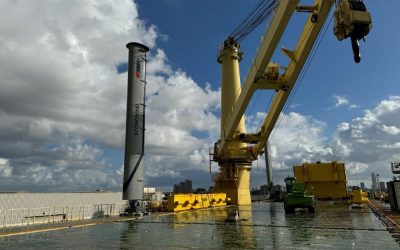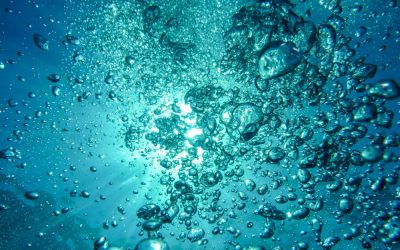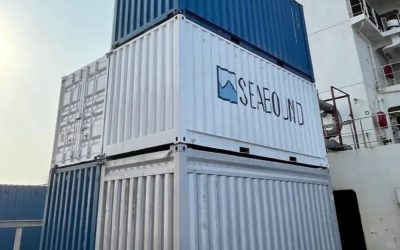A new non-flammable battery type, based on vanadium redox technology, will soon have a chance to demonstrate its benefits in a maritime setting
Class society ABS has issued New Technology Qualification (NTQ) status to a non-flammable marine battery technology developed by Gennal Engineering of Singapore. The battery system, called Blue G, is reportedly based on vanadium redox technology, and built around a water-based electrolyte solution, a storage tank, a stack cell and a regulating pump. According to ABS, the charging/discharging energy phases do not produce excess heat.
Gareth Burton, ABS VP for technology, says: “Vanadium redox technology is a potential game changer in the application of batteries at sea. It has the advantages of a long lifespan, greatly improved energy capacity and an improved safety profile as a non-flammable product.” Gennal Engineering adds that other advantages include scalability and a potential lifespan of 25 years, twice that of a typical Li-ion battery. As an eco-friendly bonus, it is also easy to extract and recycle the vanadium electrolyte once the Blue G battery is decommissioned, the developer says.
Prototype testing
Blue G is set to enter its prototype testing phase later this year. However, there are ambitious longer-term plans for its deployment. The battery will be installed aboard a forthcoming ‘green’ OSV in Malaysia, currently being developed by Gennal Engineering and naval architect Evolution Concepts, in partnership with Malaysian boatyards Grade One Marine Shipyard, Muhibbah Marine Engineering and Shin Yang Shipyard. The OSV build is also being supported by ABS’ Singapore office, litting systems specialist MacGregor, Berg Propulsion and Raytheon Anschütz Singapore, among others.
The Blue G batteries will be charged using the OSV’s onboard gensets and/or clean power sourced onshore. Construction of the vessel will commence at an unspecified date this year, with completion anticipated in approximately 18-24 months. The project has an estimated cost of US$25 million. “Because the sustainability challenge is too big for any one company to meet on its own, we encourage collaborations such as this in Malaysia to reach our shared goal,” comments Pier Carazzai, ABS VP of regional business development.





